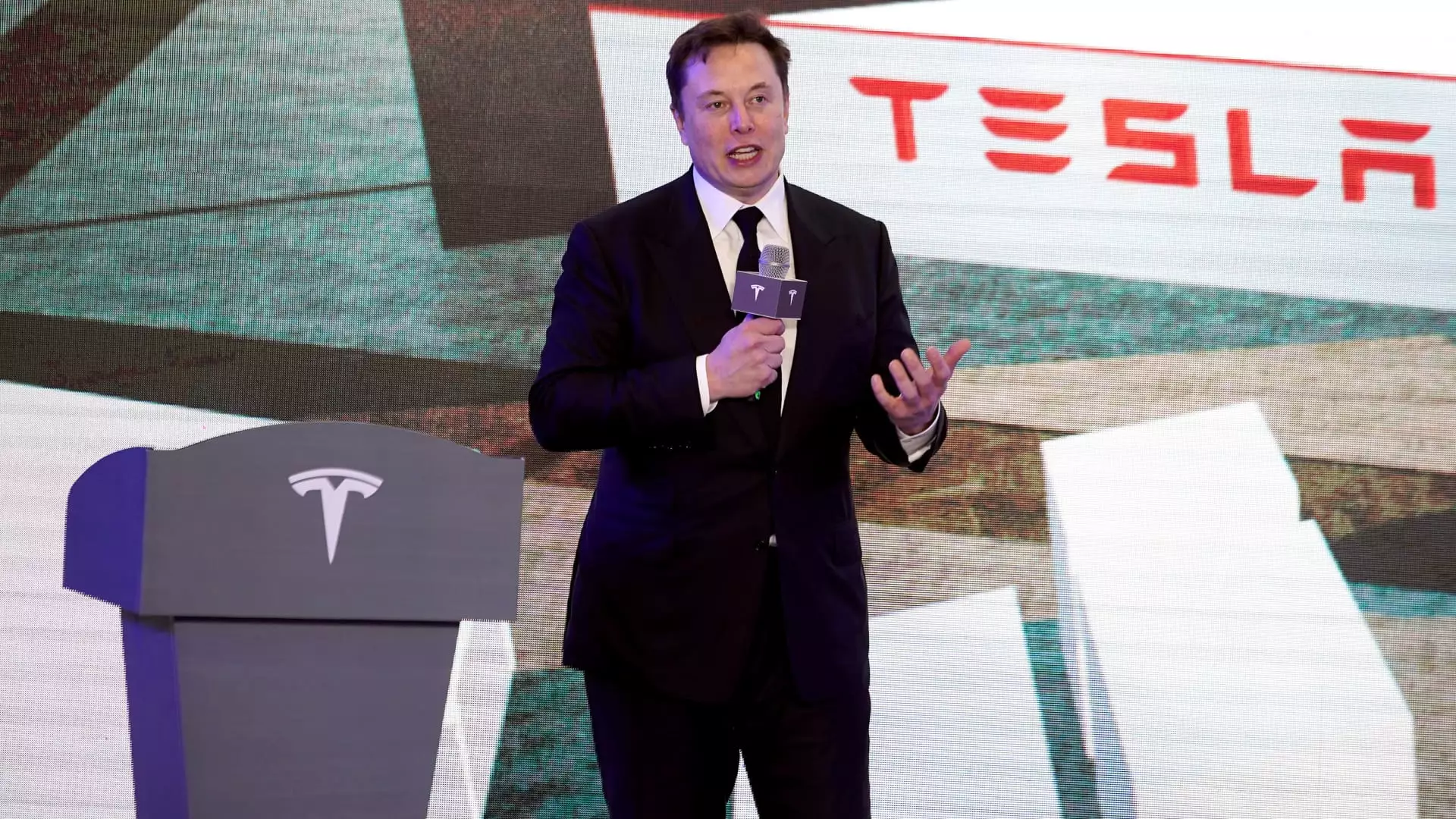In a bold strategic maneuver, Tesla has enacted new bylaws that elevate the company’s control over shareholder litigation. This development, spearheaded by Elon Musk, presents a clear signal to shareholders that the automaker is keen on safeguarding its board and executives from legal claims of fiduciary breaches. The recent regulatory filing reveals that effective May 15, shareholders must now hold at least a 3% stake in Tesla’s outstanding shares to initiate any derivative lawsuits. With Tesla’s current market capitalization surpassing $1 trillion, this places a significant financial barrier—over $30 billion—on potential litigants looking to contest decisions made by the company’s leadership.
This shift raises serious concerns regarding corporate governance transparency and shareholder rights. By setting such a high ownership threshold, Tesla forms a substantial practical obstacle to any legal action challenging the decisions of its board. As the field of corporate governance continues to evolve, this tactic illuminates an ongoing struggle between corporate interests and the rights of individual shareholders.
Understanding the Context
Tesla’s decision to enact these bylaws should be understood against a backdrop of the company’s confrontations with its own shareholders. Notably, Tesla previously faced significant legal scrutiny when it was incorporated in Delaware, where a lesser stake allowed plaintiffs to successfully challenge the board’s actions. The infamous case led by shareholder Richard Tornetta resulted in the rescinding of Elon Musk’s lavish CEO compensation package, revealing a troubling lack of oversight concerning the board’s negotiations with Musk himself.
Tesla’s shift to Texas incorporation marks a strategic pivot to a legal environment that is more favorable to corporate executives. Texas law allows companies to impose stringent requirements on shareholders wishing to initiate derivative lawsuits, and Tesla is capitalizing on this legal framework. It raises pressing ethical questions: Are companies inherently prioritizing the interests of their executives over the rights of their investors? This development not only shapes Tesla’s operational capabilities but also sets a potentially dangerous precedent for other corporations considering similar bylaws in an effort to stymie shareholder activism.
Implications for Shareholder Engagement
This regulation could substantially stifle shareholder engagement within Tesla. By forcing investors to commit significant capital to challenge the company’s decisions legally, the new bylaw effectively diminishes the voices of smaller shareholders. Corporate accountability relies heavily on the ability of investors to question decisions made from the top down, and these changes could result in a concentration of power that undermines this principle.
Moreover, this trend isn’t merely confined to Tesla. If successful, it may inspire other companies to adopt similar bylaws, further eroding the checks and balances that protect shareholders. This raises an alarming prospect for retail investors, who often rely on the ability to bring litigation as a deterrent against corporate malfeasance. The shift could reduce meaningful participation from smaller shareholders, allowing executives to operate with less scrutiny and potentially foster an environment where poor decision-making goes unchecked.
The Flip Side of Shareholder Responsibility
Advocates for corporate management might argue that these changes are necessary for humbling greedy shareholders who, in their view, often pursue litigation for reasons driven more by personal gain than corporate welfare. Indeed, there can be instances where frivolous lawsuits disrupt a company’s operations. Nevertheless, the solution should not lie in restricting the rights of shareholders but rather in enhancing the dialogue between investors and management.
Tesla’s new bylaws seem to position the company in a defensive stance rather than fostering an open environment where shareholders can engage in constructive discourse. There are lessons to be learned from Tesla’s earlier legal challenges that prompted this response, reminding the corporate world of the essential need for transparency and accountability. Limiting shareholder recourse may provide short-term comfort, but it could lead to long-term consequences that jeopardize investor trust and engagement.
Ultimately, Tesla’s new bylaws serve as a relevant case study in the realm of corporate governance. While they may offer immediate protection for board members and executives, they may also usher in a critical dialogue about the power dynamics between shareholders and management. This realignment has far-reaching implications, not only for Tesla but also for the broader corporate landscape, where the balance of power is increasingly being tested.

